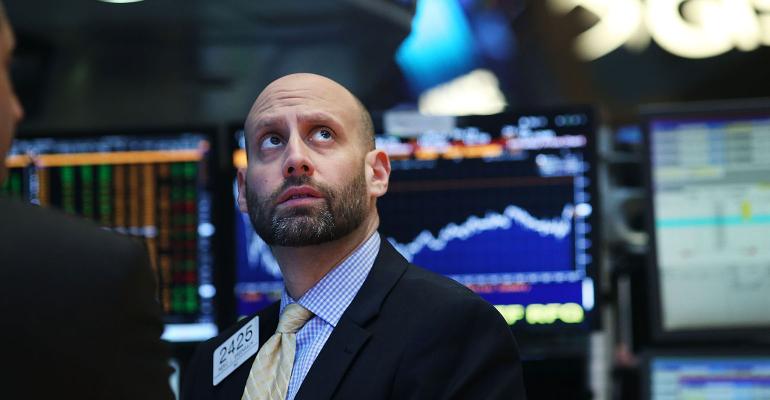By Stephen Gandel
(Bloomberg Gadfly) --If Wall Street strategists are correct, the excitement about the tax overhaul will turn out to pack more punch than the actual cut.
Investors have come back to their desks in the new year to a bunch of reports -- some out this week, some published right before the holiday -- from Wall Street's top strategists detailing just how much corporate profits will benefit from a tax-inspired economic bump. The answer: Not that much. That hasn't stopped investors from continuing to pump up the market, with the S&P 500 Index up nearly 2 percent already in 2018 and the Dow Jones Industrial Average crossing 25,000 for the first time on Thursday.

Consider Keith Parker, UBS's head U.S. equity strategist. On Thursday, he became the latest to increase his market prediction after the passage of the tax law. Parker says the S&P 500 will hit 3,150 this year, a rise of 18 percent for 2018, making him Wall Street's biggest bull among the largest banks and brokerage firms. How much of that gain will come from the economic boost of the tax cut? Just 1.5 percent. And that comes from the most bullish of the bulls.
To be sure, most of Wall Street, including Parker, expect a pretty big overall earnings boost from the tax law. Bank of America Merrill Lynch, for instance, which put out its revised earnings estimate earlier this week, forecasts S&P 500 companies will earn a collective $153 a share this year, a 10 percent increase from their estimate before the tax law was enacted and 16 percent more than what the strategists at the bank think the biggest U.S. companies earned in 2017. That would be the biggest jump in corporate profits of big public companies since 2010, when bottom lines rebounded from the financial crisis, and the fifth best annual increase in the past two and a half decades.
But nearly none of the predicted jump comes from economic growth. Almost all of it comes from pure tax math. Bank of America's $14 estimated EPS boost includes $10 generated just from the drop in corporate rates to 21 percent from 35 percent. It also estimates that companies will use some of their tax gains, as well as cash repatriated from overseas, to buy back stock and lower their shares outstanding. Bank of America says those buybacks will boost earnings per share by another $3, leaving just $1 coming from all the other things the tax cut was supposed to do, like boosting capital spending and raising employee wages.

Parker puts the portion of earnings increase that he expects from a better economy at $2 a share for S&P 500 companies. Goldman Sachs strategists, like those at Bank of America, put the economic benefit of the tax bill at just $1 in extra EPS for the S&P 500 in 2018, but they think the overall benefit of the cut will be just $7 in total extra per-share earnings, or half of Bank of America's estimate. Worse, Bank of America thinks whatever juice the the tax cut provides will quickly dry up. By 2019, the strategists predict that earnings growth will slow to 5 percent and that the tax cut will by then be a "headwind" by stoking inflation and perhaps causing the Federal Reserve to raise rates faster than anticipated.
Of course, there is a difference between corporate profits and economic growth, and tax-cut proponents have been promising the later. Higher wages and corporate investment would boost the economy more than profits, though investors could reasonably expect some positive knock-on effect on profits, presumably more than a mere 1.5 percent, even in the first year. Still, many, most notably President Donald Trump, who tweeted about the Dow's latest milestone on Thursday, have pointed to the rise in the market as proof that the tax cut and other policies will improve the economy.
The problem is investors value continued growth much more than one-time gains. Indeed, UBS's Parker speculated about an even higher S&P 500 forecast before the tax law passed but settled on his latest figure because so much of the earnings growth is coming from a one-time tax boost. Investors seem content with the tax cut for now, but if the economic effect is as mild and fleeting as some top prognosticators predict, it's hard to see them maintaining their enthusiasm.
This column does not necessarily reflect the opinion of Bloomberg LP and its owners.
Stephen Gandel is a Bloomberg Gadfly columnist covering equity markets. He was previously a deputy digital editor for Fortune and an economics blogger at Time. He has also covered finance and the housing market.
To contact the author of this story: Stephen Gandel in New York at [email protected] To contact the editor responsible for this story: Daniel Niemi at [email protected]

